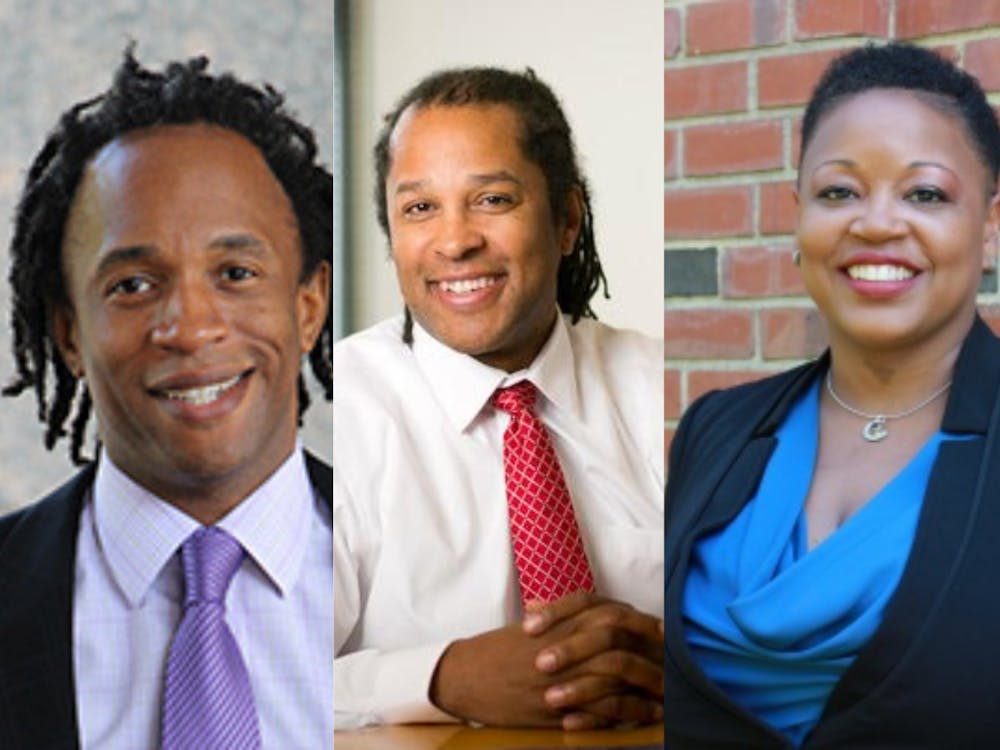Why has the COVID-19 pandemic disproportionately affected Black and brown people in the United States?
A Friday panel moderated by Thomas Williams, senior lecturing fellow the School of Law, focused on the relationship between racism and COVID-19—and the disease’s disproportionate effects on African Americans and other people of color.
After presenting a stark comparison of COVID-19 statistics in the United States and the rest of the world, Williams emphasized that impact is “not in the current moment” but will be informed by historic inequity, and that “we will see the repercussions of the impact now in the future.”
He highlighted the need for better data measurement focusing on racial data and historic trends of racial injustice.
The panelists were Keisha Bentley-Edwards, assistant professor in medicine and associate director of research at the Samuel DuBois Cook Center on Social Equity, and Jay Pearson, assistant professor in the Sanford School of Public Policy.
Pearson emphasized how racial hierarchies and bias are central to the American social order and national identity, and discussed the negative power of racism in worsening health outcomes.
“Given that racial categorization in the US context is a social, not a biological construct, each of the proposed proximal risk factors are themselves the result of a persistent and pernicious structurally racist society,” Pearson said. “And many of the comorbidities that have been cited and that are associated with increased risk for COVID-19 and greater health impact once COVID-19 is contracted, are similarly, the result of social and psychological stress and distress from being relegated to inferior positions in a fundamentally racist society and struggling to be seen and valued as a full human in that same society.”
Bentley-Edwards added that comorbidities such as diabetes, hypertension and asthma are prevalent in African American and Latinx communities. Even when this prevalence is similar to white community members, however, African Americans are still dying at a disproportionate rate.
She said that unemployment numbers for African Americans are typically twice as high as the national unemployment statistics, which leads to reduced insurance coverage and ability to pay for treatment or ventilators. She noted additional complications faced by minority families, such as the decision to work and send children to school.
“When we think about Black, Latinx, immigrants and refugees, there are a higher number of folks who fit those categories that are also essential workers who may or may not be able to socially distance at home,” Bentley-Edwards said. “It complicates things especially as we start talking about schools opening up, where parents have to weigh, ‘do I send my kids to school where they can get access to more resources, school lunch, school psychologists, the school nurse...?’ And whether or not we also put our families at risk when they come home with whatever they've been exposed to.”
Both Bentley-Edwards and Pearson emphasized that institutions characterized by negative social bias cause stress in people of color, which increases the speed of cellular aging and worsens health outcomes.
The panel concluded with a call for students, faculty, professionals and citizens to institute change and protect their communities.
“On one hand we need diverse folks with diverse lived experiences to feed the knowledge creation that brings these things to the forefront, but at the same time, especially I think if you are Black or brown, you are very likely to have folks who are in service at some other institution,” Williams said.
Bentley-Edwards and Pearson argued that professionals must come from diverse backgrounds to contribute to the knowledge on how to best help people of color, and that it is important to recognize the overlap between the market of low-skill labor and essential workers who ensure that institutions continue running. These workers, they said, ought to be protected.
They emphasized that we all have agency—even as students—to enact change, start a dialogue with communities of color, and volunteer our time and resources to organizations that are working to create consistent testing and support for those communities.
The event was co-hosted with the Duke Center for Science and Justice; the Samuel Dubois Cook Center on Social Equity; the Duke Center on Law, Race and Politics; and the Sanford School of Public Policy. It is the second part of a series of Coronavirus Conversations on the intersection of race and COVID-19.
Get The Chronicle straight to your inbox
Signup for our weekly newsletter. Cancel at any time.

